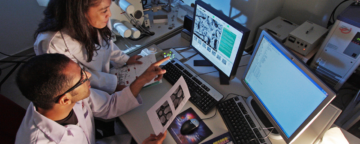Researchers at Penn and other institutions developed SCIMaP, an interactive map to show the impact that cuts to federal funding for scientific research would have at national, state, and county levels.


Researchers at Penn and other institutions developed SCIMaP, an interactive map to show the impact that cuts to federal funding for scientific research would have at national, state, and county levels.

A new APPC-NAS-Sunnylands book highlights the importance of human accountability and responsibility when using AI in scientific research.

In PNAS, APPC researchers identify factors that reflect public assessments of science and are associated with public support for increasing U.S. funding of science.

At the delayed commencement for Penn's class of 2020, Kathleen Hall Jamieson lauded the university's faculty, students, and graduates for their work battling the pandemic.

Science leaders and scholars convened at Sunnylands retreats aimed at ensuring scientific integrity in research, authorship, gene editing and in judicial filings.

APPC has launched the Annenberg Science Media Monitor to analyze the content of news reporting on science. The first report focuses on coverage of scientific discovery.

Scholars, editors, and scientists at a National Academy of Sciences-Sunnylands-APPC retreat proposed uniform standards and greater transparency to clarify the roles of authors across different journals, fields, and cultures.

An essay in Science magazine this month defends the vital importance of basic scientific research and references the work of the policy center's science communication program in advancing that message.